Dussehra, also known as Vijayadashami, is a major Hindu festival that celebrates the victory of good over evil. It falls on the tenth day of the month of Ashwin in the Hindu calendar, which usually occurs in September or October. The festival marks the end of the nine-day Navaratri festival and is closely associated with the stories of Lord Rama’s victory over the demon king Ravana and the Goddess Durga’s triumph over the buffalo demon Mahishasura.
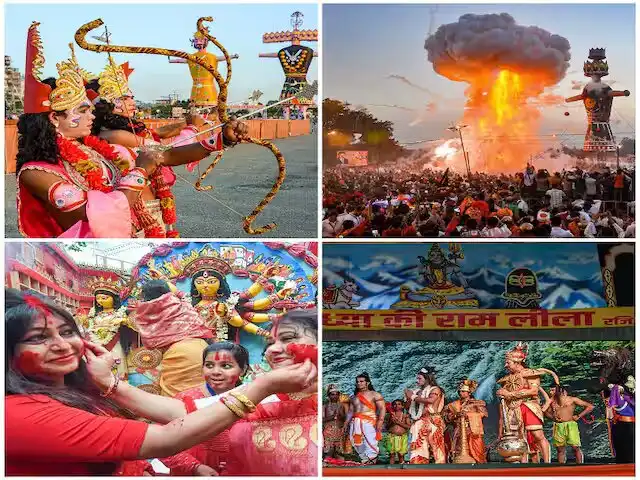
Significance of Dussehra
Dussehra is of immense significance in Indian mythology. It commemorates the victory of Lord Rama, one of the avatars of the god Vishnu, who defeated the ten-headed demon king Ravana. Ravana kidnapped Rama’s wife, Sita, which led to a great battle between Rama and Ravana. With the help of Hanuman and his army of monkeys, Rama finally slays Ravana and rescues Sita, symbolising the triumph of good over evil. This story is portrayed in many forms across India, with different regions celebrating it with their unique customs.

In another context, Dussehra also celebrates the victory of Goddess Durga over Mahishasura, a powerful demon. Mahishasura had terrorised heaven and Earth, and only Goddess Durga could stop him with her powerful weapons. The festival is a reminder of the strength of good forces and the eventual downfall of evil.

How is Dussehra Celebrated?
Dussehra is celebrated with great enthusiasm all over India, but the customs vary by region.
- Ramlila Performances: In many parts of India, especially in North India, large-scale theatrical performances called Ramlila are held. These are dramatic re-enactments of Lord Rama’s life, with the final episode focusing on his victory over Ravana. Huge effigies of Ravana, Meghnad (Ravana’s son), and Kumbhakarna (Ravana’s brother) are set ablaze, symbolising the destruction of evil forces.

- Worship of Weapons and Tools: In some regions, people worship their tools, machinery, and vehicles on this day, seeking blessings for prosperity and protection in their work. This practice comes from the belief that the tools and weapons used by warriors hold divine power.

- Durga Puja Immersion: In West Bengal and some other parts of Eastern India, Dussehra coincides with the last day of Durga Puja. The grand idols of Goddess Durga are carried in processions and immersed in water, symbolising her return to her heavenly abode.
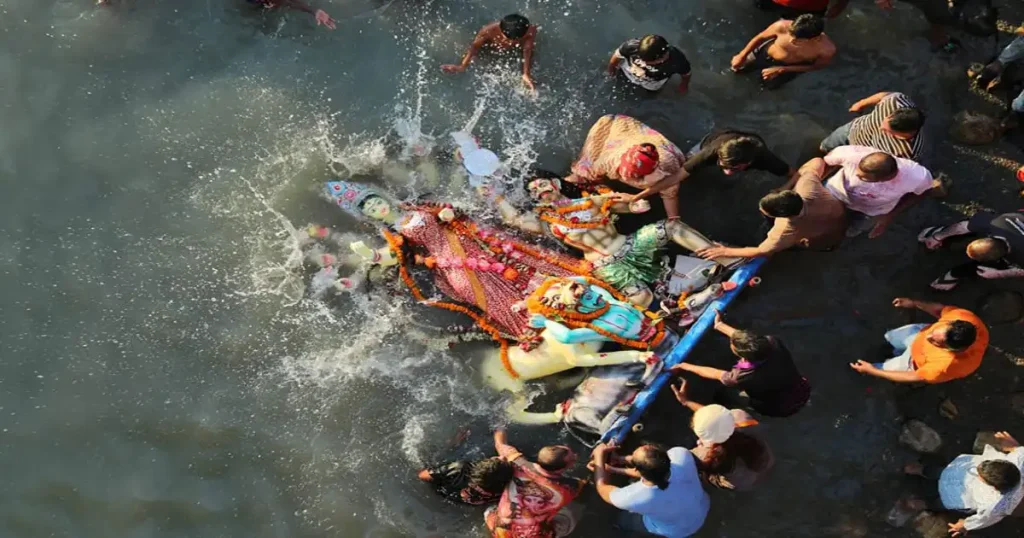
- Fairs and Festivals: Across India, vibrant fairs are organised, featuring rides, local delicacies, and stalls selling everything from traditional clothes to handicrafts. People dress in their finest clothes, and communities gather to celebrate.
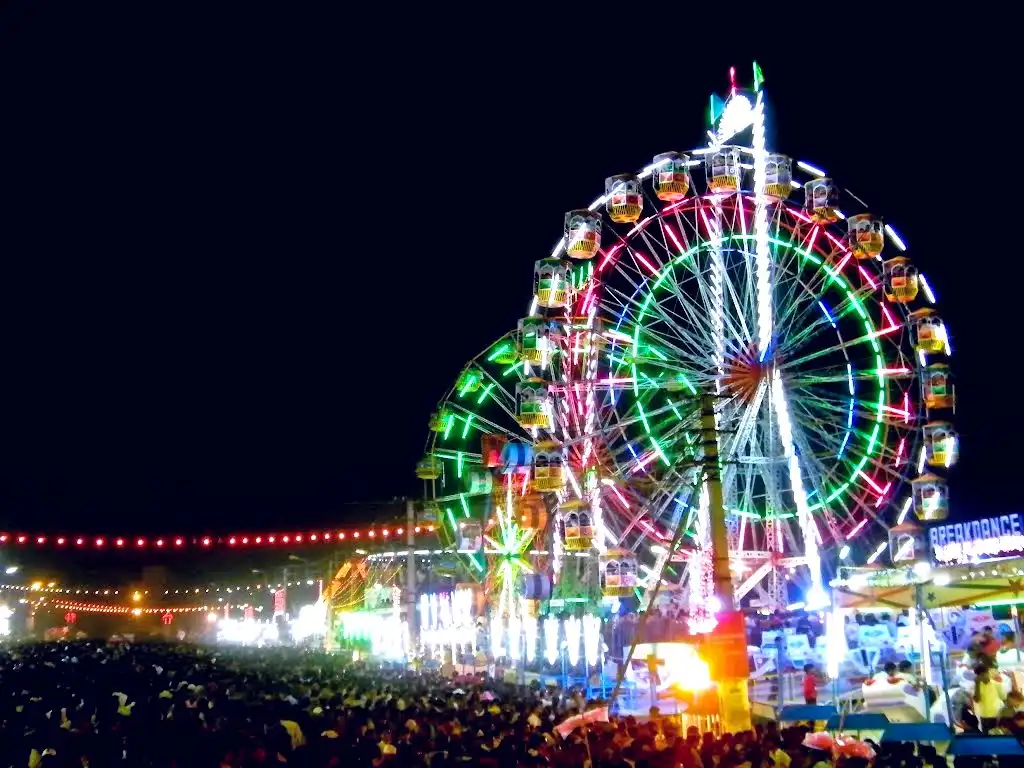
- The Mysore Dussehra: In Karnataka, the Dussehra celebration in Mysore is world-famous. It includes a grand procession, beautifully decorated elephants, music, and dance performances. The Mysore Palace is illuminated with thousands of lights, creating a magical spectacle.

- Kullu Dussehra: The Kullu region in Himachal Pradesh celebrates Dussehra in a unique manner. Instead of burning effigies of Ravana, they worship idols of gods and goddesses carried in a huge procession.
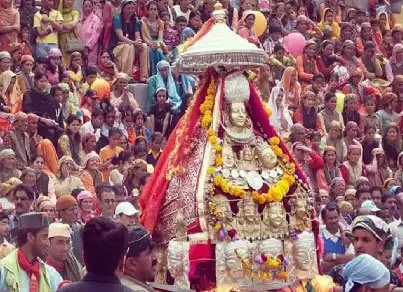
Why is Dussehra Important?
Dussehra reminds us that no matter how powerful evil may seem, it will eventually be defeated. The festival encourages individuals to conquer their inner demons, such as anger, greed, and jealousy, and focus on positive attributes like kindness, truthfulness, and humility. It also promotes unity, as communities celebrate the event with camaraderie and joy.
Dussehra 2024
In 2024, Dussehra will be celebrated on October 12. As always, the festival will be marked by widespread festivities across the country. Many families will gather to watch Ramlila performances, offer prayers, and participate in community events. The sight of the towering effigies of Ravana burning amidst fireworks will once again inspire the message that righteousness always prevails.
Dussehra Across the World
Although Dussehra is predominantly celebrated in India, its significance is recognised by Hindus all over the world. In countries like Nepal, Sri Lanka, and Bangladesh, the festival is observed with great reverence. Indian communities in countries like the United States, Canada, and the UK also celebrate Dussehra, organising Ramlila performances and traditional processions to keep the spirit of the festival alive.
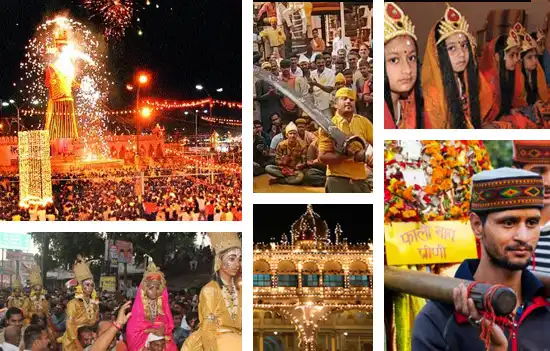
Conclusion:-Dussehra is not just a festival of fun and festivities but a celebration of the eternal truth that good will always conquer evil. It teaches us to be brave, to stand up for what is right, and to believe in the power of goodness. Whether through the burning of Ravana’s effigies, the colourful fairs, or the spiritual immersions, Dussehra brings people together in a shared message of hope, faith, and victory.
As you celebrate Dussehra, remember the lessons it teaches – to defeat the inner demons and strive to be a better person each day. May this festival bring joy, prosperity, and peace to all.
For more interesting articles, please visit www.kidzherald.com





